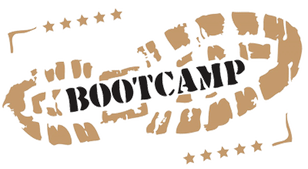Writing the college essay is often the first time students are confronted with the task of writing a personal narrative. It’s an essay unlike anything they’ve written in school thus far, and if students try to approach it like an essay they would write for English class, there’s a good chance they will submit something rather mediocre. We wanted to start your summer off right by putting together a bunch of FREE resources your student can use to write a compelling personal narrative that strengthens their application instead of dragging it down.
What’s a personal narrative?
First, let’s define a personal narrative. A narrative is a fancy literary term for story. Your college essay is a personal story. A well-written personal narrative has focus and uses one story from the student’s life, allowing room or a deep dive so the reader can understand more of the student’s nuances and complexities.
What does a strong personal narrative with focus and complexity look like?
Great question. Example here, and here, and here. Oh, and try this one on for good measure.
Ok, so where do I start?
My best advice? Go sit at the top of a mountain for an hour and think about who you are. Want something more practical? Use this values exercise to clarify what matters to you most as a person. There are a couple pieces of advice that if you do nothing else for your college essay I’d want you to do these things:
- Be yourself, warts and all. We call this authenticity. Think of your favorite novel or movie. Are the characters perfect? Does the plot line have everything go perfectly for them all the time? No! That would make for a terribly boring story. Consider the same with your essay. Life is perfect. None of us is perfect. Don’t pretend to be perfect or manufacture experiences that you believe sound impressive because you will end up annoying your reader. Just be yourself.
- Write about something the reader can’t otherwise learn about you. Your resume lists your activities, your transcript shows off your smarts, use the essay to be human and connect with the other real human(s) who will be reading your essay.
Which prompt do I choose?
Want to hear something crazy? My students don’t write to prompts (at least at first). I tell them to just write me a essay that tells me a story from their lives that teaches me something important about who they are. That’s it. That’s the heart and soul of the personal narrative anyway. Don’t limit your thinking by introducing a prompt prematurely. Also ignore word counts until the editing phase.
Once the first draft is done, then go back and see which prompt it best aligns with from the Common App and Apply Texas.
Just write
Struggling? Just write. Put pen to paper or fingers to keys or even voice to recorder if you think aloud like I do and let the story flow, perhaps in a stream-of-consciousness the first time to see what’s there, perhaps in something a little more formed, but either way, just write.
Ready to edit? Great. We have some handouts.
First, see if the topic of your essay is falling into one of the categories for things we suggest not to write about. There are exceptions to this, but most students are well-advised to steer clear of the things listed here.
Here are some suggestions on how to turn good writing into great writing. This handout was put together by Wendy Reimann, a professional writer who also partners with us for our essay workshops.
Are your students younger and this is not quite on your radar yet?
Have them keep a summer journal. Journaling is one of the greatest precursors to writing in the style of a personal narrative. Pick up a book of journal prompts from Barnes and Noble (and stop by my favorite place, The Flour Shop, while you are there!). Have your student do three prompts a week, with a paragraph minimum.
Want to run through all of this together? We can do that.
Option 1: Essay workshop (camp focused solely on the college essay)
Option 2: College App Camp (essays + most everything else you need to apply)


 RSS Feed
RSS Feed
